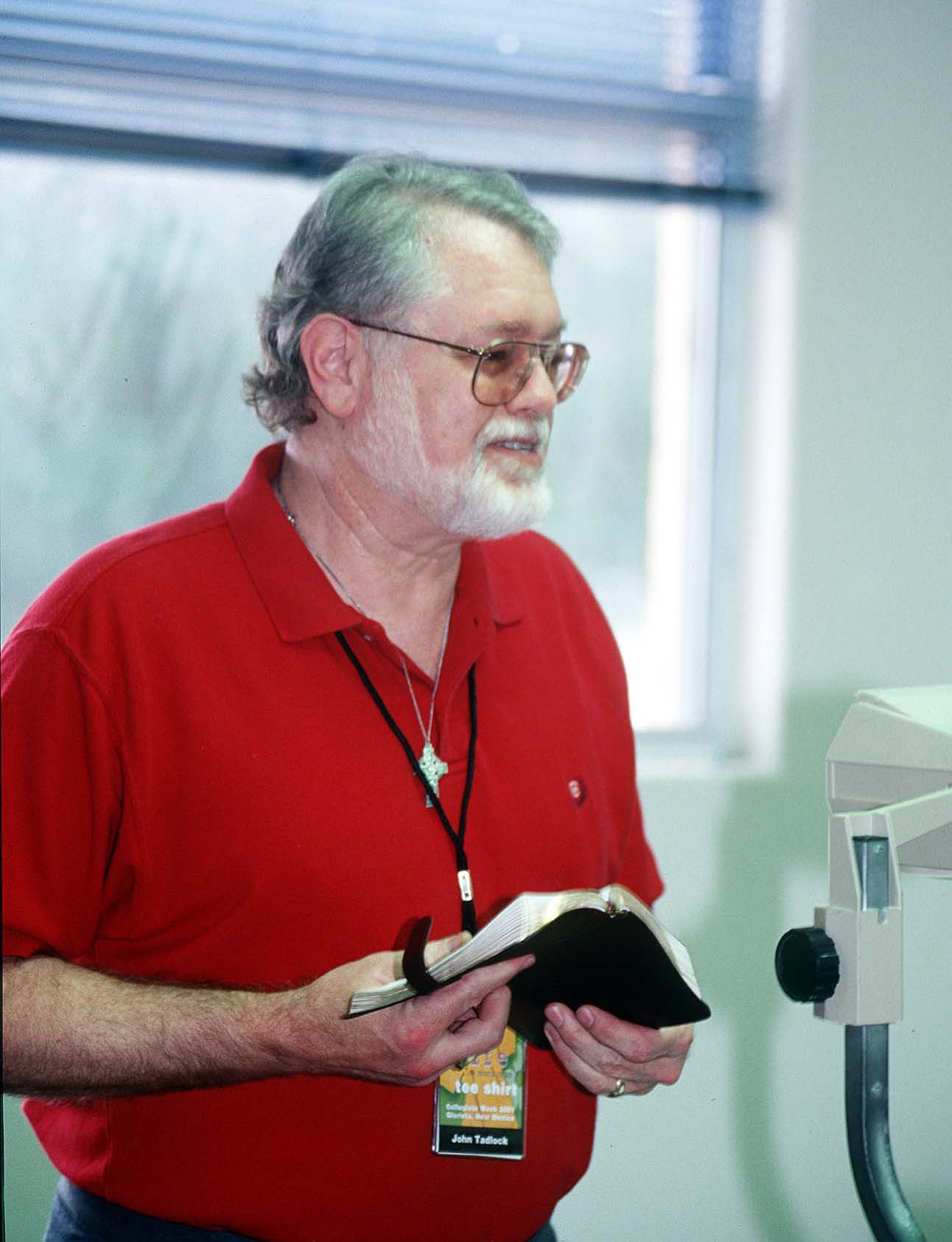
GLORIETA, N.M.(BP)–John Tadlock says there is an epidemic of “hurry sickness” in today’s run-as-fast-as-you-can world.
“Everyone is busy. Everyone uses the words, ‘There aren’t enough hours in a day.'” But, he said, days have the same number of hours they always have. Tadlock, collegiate ministries group leader with the Baptist General Association of Virginia, spoke to a group during Collegiate Week at LifeWay Glorieta Conference Center.
Hurry sickness, he said, is “the continuous struggle to participate in more and more events in less and less time, frequently in the face of opposition of other people.
“We have faxes, e-mails, voice mail, pay at the pump and microwaves — all this stuff designed to take less time so we will have more time. But, you know, it doesn’t work that way,” he said.
Thirty-four years ago some members of Congress predicted that by the turn of the century one of the main problems in the United States would be what people would do with all their spare time, he noted. With all the “new” time-saving devices, the U.S. work week would be cut to about 30 hours, they had predicted.
“Now, tell me, how many of you have all that spare time?” he asked. “You may have hurry sickness if you are constantly speeding up the pace of your daily activities.
“If you are approaching a stop light and you judge which lane to get in based on the make and model of the cars already there, you probably have hurry sickness. If you choose a lane at Wal-Mart based not only the number of people in the lane, but by doing a mental tabulation of the number of items they have in their carts, you probably have hurry sickness,” Tadlock said.
“But you know you have a bad case if you even keep track of the people in the other lanes and you calculate if they are moving more quickly than you are and you are upset if they get through their lane before you do.”
He said a second symptom of hurry sickness is becoming “polyphasic,” when a person always is trying to do more than one thing at a time.
“You’re never satisfied with how much you are accomplishing, are you?” he asked. “You’re always doing at least two things simultaneously — talking on the phone and typing on the computer, reading a book and watching television. Oh, and driving your car … what all do we do while we are driving? Put on make-up, talk on a cell phone, shave, comb our hair, eat breakfast, change CDs in the player. Does this sound familiar?
“And the classic — think about it. Do you have magazines or books in your bathroom?” he asked the group.
Tadlock said there is a spiritual danger when people become polyphasic in their prayer life. “How many of you have your prayer time when you are driving the car or when you are in the shower?”
He cited studies showing, contrary to popular opinion, that increases in stimulation of the brain do not cause it to function better. “The brain actually starts to shut down when you do several things at once. We aren’t functioning better as we get busier.”
A third symptom of hurry sickness, he said, is clutter. “Our lives have too much clutter. We lack simplicity. Our culture doesn’t let us simplify well. We have too many dates on our calendar. We have too much stuff!”
Posing the question, “How does the hurry sickness affect you?” Tadlock responded by saying it causes people to become superficial and destroys a Christian’s intimacy with God.
“When we are intimate with God, the rest of our life will be in order; we operate more effectively,” he said. “Hurry crowds out significant relationships. It crowds out prayer. We use words to keep us from listening to God. To listen, you have to be still and quiet. The importance of listening to God cannot be overstated.”
Busyness also erodes a person’s capacity to love.
“We lose the capacity to love God and others,” Tadlock said. “Hurry and love are fundamentally opposed.”
He said a danger of constant activity is getting addicted to hurry. “We live in such a state of adrenaline arousal that we can’t slow down.”
So, what can be done?
“We have to ruthlessly delete hurry from our lives,” Tadlock said. “The opposite of hurry isn’t slow. The opposite of hurry is rest. God wants us to understand the importance of rest, of sleep.”
He quoted what he said is often heard in religious circles: “‘I’d rather burn out than rust out.’ Well, people, either way, you’re out!
“Maybe the most spiritual thing you can do tonight is to get a good night’s sleep,” Tadlock counseled. “You can’t be loving to anyone if you’re tired. Sleep is a spiritual act that may bring you closer to God. You can’t pursue life and God without it.”
About 2,000 people attended the Aug. 4-10 event sponsored by LifeWay Christian Resources of the Southern Baptist Convention. The next Collegiate Week at Glorieta will be Aug. 3-9, 2002.
–30–
(BP) photos posted in the BP Photo Library at http://www.bpnews.net. Photo titles: TAKING TIME and DIAGNOSING ‘HURRY SICKNESS.’















